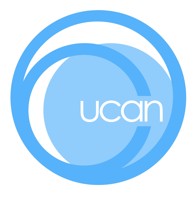By KATE NOWLAN
Published: August 22, 2013
This past year was busy and rewarding for our research program at the UNC Center of Excellence for Eating Disorders (CEED). We launched several studies and saw an incredible response to recruitment efforts as described in my coworker’s recent blog post about the Anorexia Nervosa Genetics Initiative study (ANGI). Inspired by her post, I wanted to follow-up with an update about the Uniting Couples (in the treatment of) Anorexia Nervosa study (UCAN) that we launched in November 2012. I am also happy to announce a grant Dr. Cristin Runfola, a current CEED Postdoctoral Research Fellow and Clinical Psychologist, received from the Global Foundation for Eating Disorders (GFED) to adapt the UCAN treatment manual for couples facing other eating disorders.
UCAN Study Update
As a reminder, the UCAN study explores two comprehensive treatments as couples face the challenges of anorexia nervosa. Our goal is to recruit 50 couples over the course of the study. Over the past nine months, we too have seen a very positive response to our study. I know I speak for the UCAN team when I say that we are excited about the favo

rable response and cannot wait to continue recruitment in this direction! Please continue to follow our blog for future updates about the UCAN study.
In the meantime, if you, your partner, or someone you know is suffering from anorexia nervosa and believe UCAN would be a beneficial treatment option, you can call us at 919-843-2483 or email us at ucan@unc.edu to learn more about the potential to receive comprehensive treatment at no cost.
Adapting UCAN for Other Eating Disorders
Something that really stood out to me this past year during recruitment for UCAN is that people from all over the United States expressed interest in the treatment. Many individuals described wanting to work as a couple to overcome anorexia nervosa. This national response highlights that couples are searching for psychotherapeutic treatment options that allow them to work together with their significant other in the treatment of eating disorders. Like with anorexia nervosa, partners of individuals with other eating disorders are eager to help their loved ones recover.
Members of our team at CEED recognize this interest. They also understand that couples experiencing various eating disorders have unique treatment needs. Thus, in collaboration with UCAN directors, Drs. Cynthia Bulik and Don Baucom, and with funding from GFED, Dr. Runfola will spend the next year gathering the background information necessary to adapt the UCAN treatment manual for other eating disorders, including bulimia nervosa and binge eating disorder.
To inform the treatment adaption, Dr. Runfola will interview couples in which one member is dealing with bulimia nervosa or binge eating disorder. Speaking with each member of the couple separately, she will gather qualitative data to learn how to best leverage a partner’s support in the treatment of each of these disorders while also addressing his or her needs. She will then use these data to adapt the manual and pilot test the treatment with couples. Her goal is to use the initial pilot testing to inform the development of a larger grant to evaluate the efficacy of these new treatments formally. UNC CEED’s ultimate goal is to build a suite of couple-based interventions covering all eating disorders.
In interviewing Dr. Runfola about this new project, it was evident that she is extremely grateful to GFED for sponsoring this research, which she hopes will make a significant impact on the treatment of these disorders. She stated, “Far too often, I’ve seen loved ones of patients with eating disorders devastated about ‘losing’ their partner and relationship to the illness and not having a clue what to do about it. At the same time, patients often tell me that their primary motivator for recovery is their partner or kids.” She went on to describe how recovering from an eating disorder is not easy, and takes a lot of work and courage on the patient’s part. She thinks “it just makes sense” to include and capitalize on the person’s primary support–the spouse or partner–in the individual’s recovery from this disease. She looks forward to hearing directly from couples about what their ideal version of treatment would look like.
In regard to GFED, Dr. Runfola couldn’t give higher praise for their organization’s mission to eliminate eating disorders through research. She is honored to work with an organization that is sponsoring scientists to explore a full range of treatment for all eating disorders.
Please visit the GFED website to learn more about the non-profit organization and how you can help them reach their goal of eliminating eating disorders. For more information about Dr. Runfola’s grant, go to the GFED grants page and scroll down to the “Grants Committed for 2013” section.
Global Foundation for Eating Disorders
611 Broadway, Suite 838
New York, NY 10012
Tel: 212.475.4700
Email: info@gfed.org